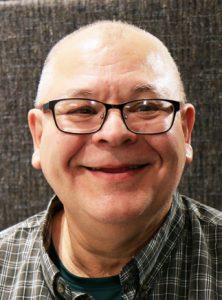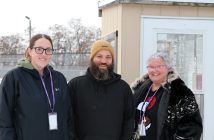RAY BROOK — CSEA High Peaks State Employees Local President John LeFebvre knows a lot about cold weather.
With the Adirondacks as his office, and thousands of acres of trails and mountains to maintain, cold weather is part of the job as a conservation operations supervisor 2 at the state Department of Environmental Conservation (DEC).
LeFebvre, who serves on our union’s Standing Safety and Health Committee and is one of CSEA’s longest-standing health and safety advocates, consistently works to keep members safe, as well as inform and educate them.
When it comes to cold-weather work, LeFebvre said the best way to hold employers accountable is through contract language based on the U.S. Occupational Safety and Health (OSH) Act of 1970.
“There is no specific law pertaining to protection from cold, but the 1970 OSH Act is the broadest protection for workers from job hazards and cold weather falls under that,” said LeFebvre. “Our state government contracts address it in Article 15 section 10 and specifically mentions temperatures under 0 degrees.”
LeFebvre also has advice for members employed by local governments.
“I suggest that local government members look to replicate and reinforce that language in contracts,” he said.
At DEC, LeFebvre said workers there are fortunate that supervisors are educated about proper protocol for cold weather, as well as hot weather. LeFebvre noted that the protocol can include adjustments to schedules or alternative work schedules when possible.
Even with these adjustments, LeFebvre noted that workers can’t always avoid extreme weather.
“I remember one day several years ago when a well pump had to come out,” said LeFebvre. “That’s not necessarily a situation where you can implement an alternative work schedule.”
— Therese Assalian




